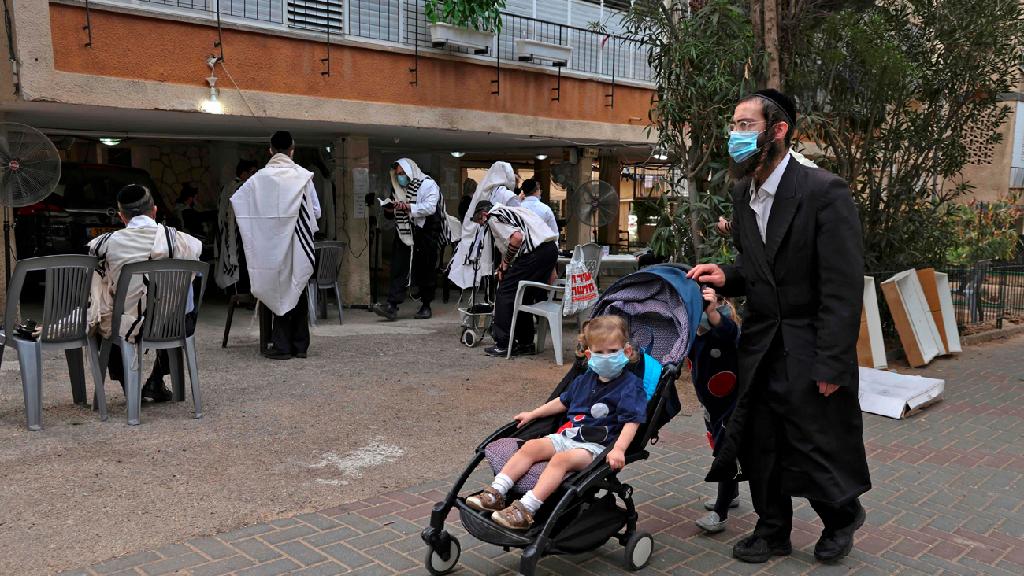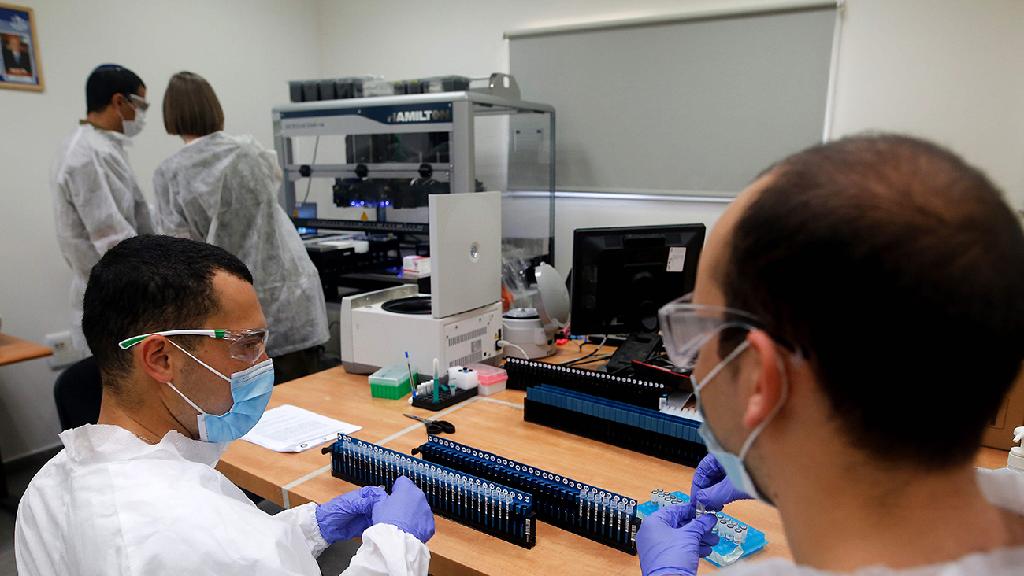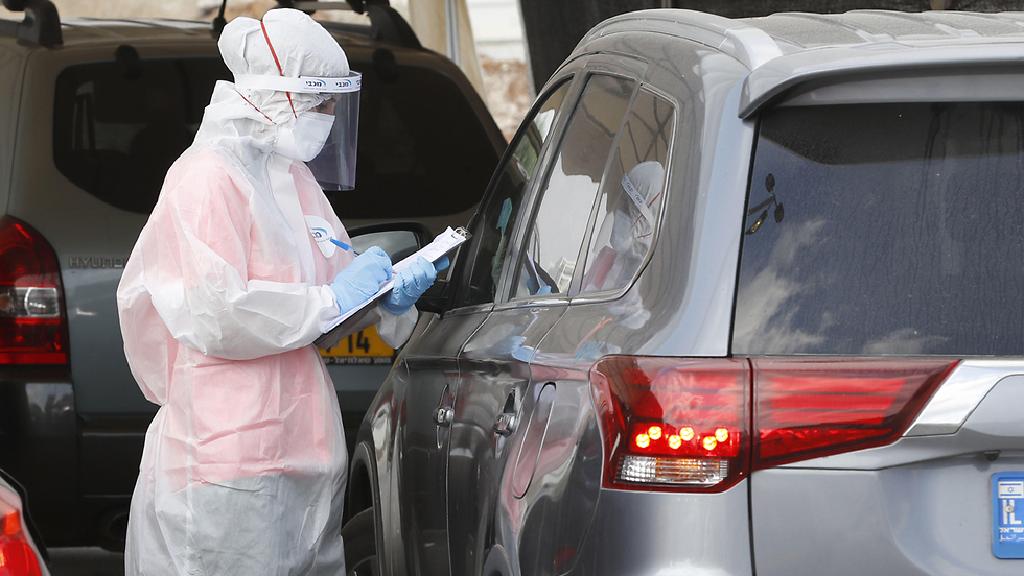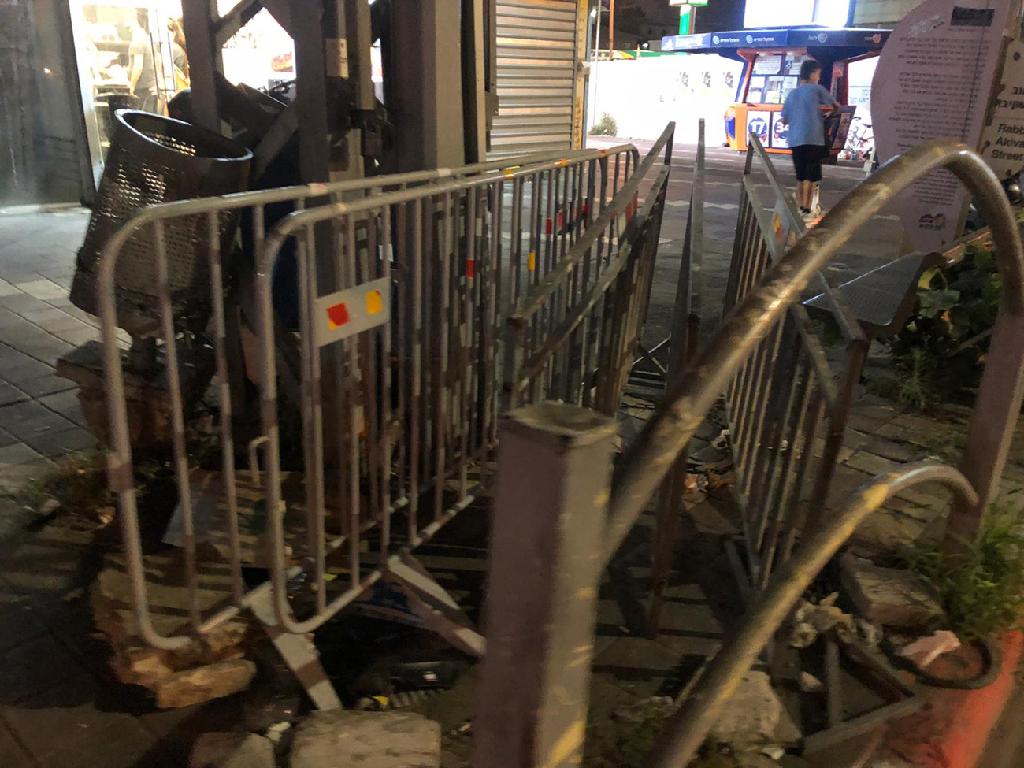The Health Ministry on Tuesday said that a record-breaking number of new coronavirus cases was confirmed on Monday with 3,392 new infections detected.
After 40,382 tests were carried out, the positivity rate stood at 8.4%.
Since the start of the pandemic, 135,043 Israelis had contracted the virus. There are 27,723 people now battling COVID-19 with 920 receiving care in hospitals and 463 described as seriously ill.
On Monday, Israel saw the 139 seriously ill patients on ventilators, the highest number to date.
Israel's death toll from COVID-19 has also reached 1,026, with six fatalities on Monday, according to Health Ministry.
In the past week, 2,024 new patients were recorded in Jerusalem and 681 in Bnei Brak. Tel Aviv saw 331 new cases.
Despite the high rate of infection in some communities, the number of people in quarantine remains relatively low.
The Ultra-Orthodox city of Bnei Brak has 1,464 active cases of COVID-19 but only 382 people have been required to quarantine after coming into contact with a confirmed patient and in the West Bank settlement of Modi'in Ilit despite 760 people being confirmed with the virus only 136 have quarantined.
4 View gallery


People praying outdoors as a resident walks by with his children in Bnei Brak
(Photo: AFP)
In contrast, Tel Aviv which on Monday reported it had 737 active cases, has 2,594 people isolated after coming into contact with a confirmed COVID-19 patient.
Health officials continued talks with local municipalities overnight before deciding on an updated list of localities that would be imposing a night-time curfew on their residents.
An estimated 40 such locations are expected to see a curfew imposed from 7 pm to 5 am starting on Tuesday. Residents would not be allowed to venture more than 500 meters from their homes and travel in and out of these localities would be prohibited except for the purchase of vital supplies or for medical emergencies. Schools would also be closed in the hopes of mitigating the spread of coronavirus.
On Tuesday, police forces began preparing to enforce the curfew with fencing meant to restrict movement of citizens already delivered to the area of Bnei Brak.
On Thursday, ministers will be asked to approve restrictions to be imposed over the High Holidays beginning next week, with the possible closure of all schools including those in low infection areas, for the entire holiday month ending late in October.
First published: 09:16, 09.08.20




